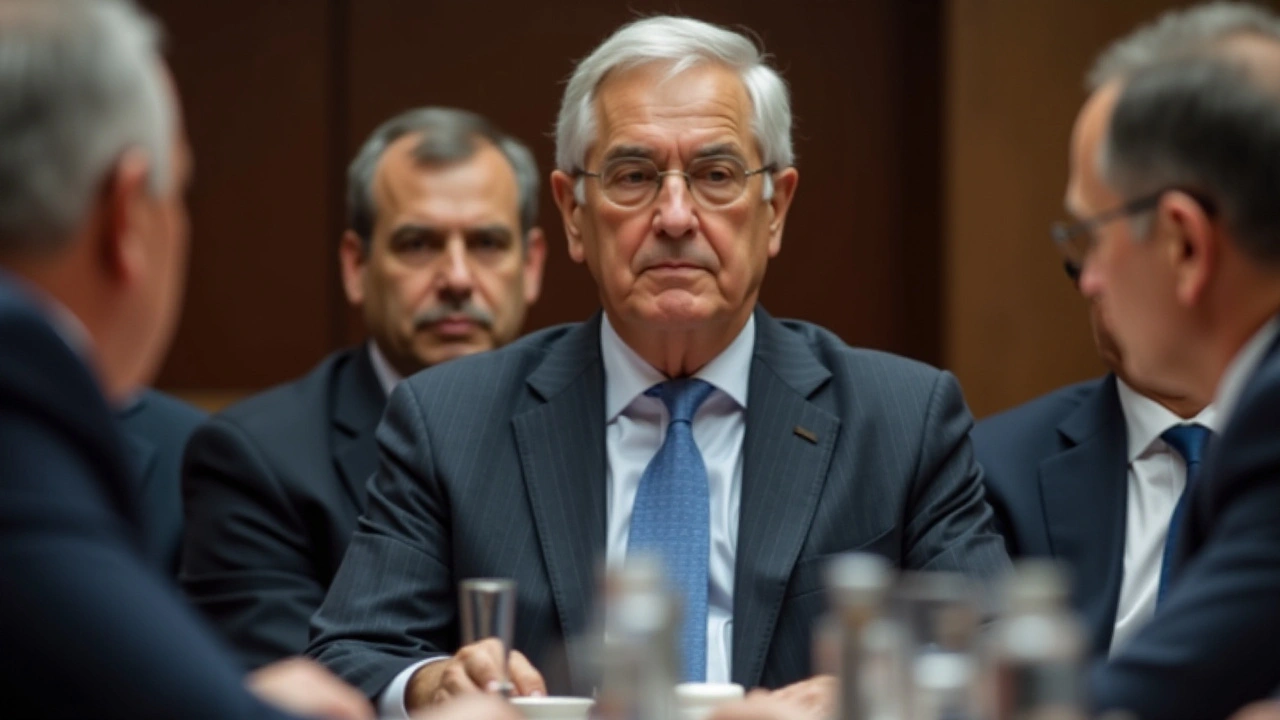Brazil Reconsiders Defense Contract with Elbit Systems
Brazil's decision to delay a contract with Elbit Systems, the prominent Israeli defense company, highlights the intricate nature of international agreements during geopolitical tensions. The contract, involving the purchase of 36 sophisticated howitzers, was originally signed in April. However, as Israel's conflict with Hamas escalates, Brazil’s leaders find themselves in a delicate position of balancing defense needs with international diplomacy. This move not only emphasizes diplomatic sensitivities but also underscores the global ramifications of the current conflict.
The deal's suspension reflects a broader international demand for a ceasefire and the ever-present awareness of collateral impacts stemming from military engagements. Brazil, by choosing to delay the contract, sends a clear message of caution and scrutiny, prioritizing diplomatic implications over immediate procurement needs. This choice reflects a challenge for Elbit Systems and other similar defense contractors operating under the shadows of political unrest, whose operations inevitably attract international attention as actors in world conflicts.
International Implications and Responses
Brazil’s decision arrives amid increasing voices from nations and global organizations urging Israel to reconsider its military strategy against Hamas. Diplomatic corridors witness immense pressure towards de-escalation, with countries re-evaluating their own engagements with Israeli entities due to mounting geopolitical pressures. Brazil's reassessment is simultaneously an assertion of its foreign policy principles and a cautionary approach to securing the country's defense requirements during volatile times.
The delay also points towards the complex nature of military procurement agreements, particularly when geopolitical conflicts might affect either side of the transaction. It demonstrates how countries, like Brazil, leave room for flexibility and reevaluation of high-stake deals when global dynamics shift, which can significantly impact defense technology transfers and related industries.

Challenges for Israeli Defense Industry
Elbit Systems and other Israeli firms in the defense sector face mounting challenges under the pressure of international scrutiny. The suspension of this deal with Brazil could trigger similar actions from other countries, hesitant in pursuing or confirming business with Israeli defense companies during the conflict with Hamas. This places Israeli defense firms in a precarious position, needing to navigate the intersection of global diplomatic relations and commercial interests.
The international defense market is no stranger to these challenges, where political climates and governmental policies significantly dictate market access. Meanwhile, the global reputation of countries involved in such transactions often sees shifts parallel to ongoing international relations, which could result in cancelled deals, delayed contracts, or renegotiated terms.
Diplomatic Fallout and Future Considerations
Continuing episodes of conflict and the subsequent diplomatic reverberations prompt international businesses and governments to reflect on their associations and agreements. Companies like Elbit Systems must anticipate potential repercussions, seeking strategic adaptability in marketing, negotiations, and contract management worldwide. For Brazil, cautiously treading international diplomacy to maintain positive relations with diverse global stakeholders remains essential.
The ongoing scenario between Israel and Hamas might chart new strategic priorities for Brazil, in terms of selecting allies and defense suppliers. The developments in this postponed deal could indeed set precedents for other countries’ responses in similar situations, where international relations and defense contracts meet at a crossroads. As the world closely monitors the situation in the Middle East, such decisions made by large nations will likely influence the broader geopolitical climate and the dynamics of international defense trade.
The unfolding political scenario indicates that strategic patience and foresight will play central roles in how Brazil and other nations handle similar circumstances in the future. The global community watches intently, gauging responses to the ongoing conflict and its influence on international partnerships and security agreements. As much as Brazil’s decision is a stand-alone diplomatic act, it acts as a reflection of the larger global puzzle underpinned by the principles of international law, peace, and bilateral partnerships.


Author
Ra'eesa Moosa
I am a journalist with a keen interest in covering the intricate details of daily events across Africa. My work focuses on delivering accurate and insightful news reports. Each day, I strive to bring light to the stories that shape our continent's narrative. My passion for digging deeper into issues helps in crafting stories that not only inform but also provoke thought.